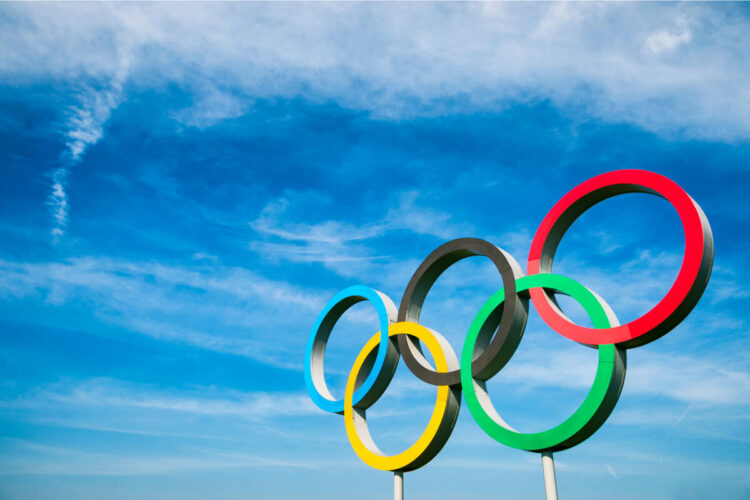As lovers of the sport of cheerleading, we’ve all asked this question: When will cheerleading be in the Olympics? It’s a dream many of us share, imagining our sport taking the global stage alongside gymnastics, track and field, and other iconic Olympic sports. However, the answer isn’t as clear-cut as we would like. Here’s what we know and what needs to happen for cheerleading to potentially become an Olympic sport.
Cheerleading achieved a significant milestone in July 2021 when the International Cheer Union was awarded full recognition by the International Olympic Committee (IOC). This recognition is a crucial step forward, but it doesn’t automatically guarantee inclusion in the Olympic Games. The sports for the Los Angeles 2028 Olympics have already been selected, and cheerleading was not included. This means the next possible opportunity for cheerleading to be considered will be the Brisbane 2032 Olympics.
With full IOC recognition, cheerleading is now eligible to be considered for inclusion in the Olympic Games. The International Cheer Union (ICU), headquartered in the United States, has been the authoritative body for cheerleading since 2009, organizing the ICU World Championships. With this recognition, the ICU can now actively petition for cheerleading to be featured in the Olympic Games.
However, several criteria and steps must be met and completed for this to happen:
- Demonstrating Global Popularity: Cheerleading needs to show that it is practiced widely across the world with a significant number of national federations participating in international competitions.
- Ensuring Gender Equality: The sport must provide equal opportunities for both male and female athletes.
- Adhering to the Olympic Charter: This includes ensuring that the sport is conducted in accordance with the principles and values of the Olympic movement.
- Increased Global Participation: Cheerleading needs to expand its presence worldwide. More countries need to adopt cheerleading as a competitive sport, and there needs to be robust national and international competitions.
- Standardized Rules and Safety Regulations: Ensuring that cheerleading is safe and has standardized rules across all levels is crucial. The sport must demonstrate that it can be regulated effectively on a global scale.
- Public Support and Awareness: There must be significant public interest and support for cheerleading. This includes not only fans but also support from national governing bodies and other stakeholders in the sports community.
We also have to look at the impact that cheerleading could have on the logistics of an Olympics. A typical cheer team consists of around 25-30 athletes. If cheerleading were to be included in the Olympics, it would likely follow a qualification process similar to gymnastics. This would mean that the top 10 countries from the year’s World Championship would qualify for the Olympics. The structure could include 12 all-girl teams and 12 coed teams, ensuring a diverse and competitive field.
Around 10,500 athletes are set to take part in the Paris Games from 206 National Olympic Committees (NOCs). This number does not include coaches and team officials. In 2020, the Summer Olympics had over 11,300 competitors from 206 nations. Adding cheerleading would mean accommodating approximately 800 additional athletes for one sport.
The Olympics regularly adjust their roster of sports, and adding a sport like cheerleading does not necessarily require building new facilities or significantly enhancing existing infrastructure. The venues used for gymnastics, for example, could be adapted for cheerleading competitions. The challenge lies more in the integration and scheduling within the already packed Olympic timetable.
The Olympic Agenda 2020, adopted in 2014, introduced new initiatives to maintain the integrity and excitement of the Games. Rule 45 of the Olympic Charter allows the host organizing committee to propose new sports, choosing from the International Olympic Committee Recognized Federations, of which there are currently 35, including cheerleading.
Tokyo 2020 was the first committee allowed to propose new sports, introducing baseball/softball, karate, skateboarding, sport climbing, and surfing as new events. For Paris 2024, the new events include breakdancing, skateboarding, sport climbing, and surfing. The Los Angeles 2028 Games will feature baseball/softball, cricket, flag football, lacrosse, and squash. Despite these opportunities, cheerleading faces stiff competition and unique challenges. Compared to the sports added for 2028, cheerleading has a complex scoring system that can be difficult to understand and isn’t as globally popular. This lack of widespread appeal and understanding may make it less attractive to viewers compared to more familiar sports.
To overcome these hurdles, cheerleading must increase its global awareness and participation. This includes expanding the sport’s reach, simplifying its scoring system for broader comprehension, and showcasing its athleticism and excitement to a wider audience.
Including cheerleading in the Olympics could significantly boost viewership and engagement. Cheerleading has a massive fan base, and its dynamic, high-flying performances could attract a wide audience. The sport showcases athleticism, teamwork, and creativity, adding a new dimension to the Olympic sports lineup. Furthermore, cheerleading promotes gender equality with both all-girl and coed teams, aligning with the Olympic movement’s commitment to inclusivity.
As athletes and fans of competitive cheerleading, we can help push our sport towards Olympic inclusion. Supporting local and international competitions, promoting safety standards, and spreading awareness about the athleticism and dedication required in cheerleading can all contribute to its recognition.
While we can’t predict the future with certainty, the steps are being taken to bring cheerleading closer to the Olympic stage. The dream of seeing our athletes “putting it all on the mat” at the Olympics is alive and well. So, keep cheering, keep supporting, and let’s keep working towards making cheerleading an Olympic sport.
Stay tuned to Cheer Daily for more coverage as cheerleading moves closer to Olympic reality.

















